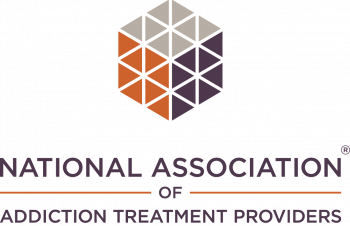There are numerous types of mental health therapy. TruHealing Gaithersburg offers a wide range of leading therapy resources and time-tested therapeutic techniques that provide optimal results for our clients. TruHealing Gaithersburg’s mental health treatment programs include:
- Cognitive-behavioral therapy (CBT)
- Dialectical behavior therapy (DBT)
- Trauma-focused therapy
- Experiential therapy
4 Types of Mental Health Therapy
1. Cognitive-Behavioral Therapy
Cognitive-behavioral therapy is a popular and effective form of talk therapy for those seeking treatment for anxiety and mild to moderate depression.
- CBT can also be used to treat:
- Panic attacks
- Obsessive-compulsive disorder (OCD)
- Post-traumatic stress disorder (PTSD)
- Eating disorders
CBT encourages clients to consider connections between their thoughts, emotions, and behaviors. CBT counselors often suggest a set number of sessions to address a particular issue a client is working through.
2. Dialectical Behavior Therapy
Dialectical behavior therapy helps clients better deal with the difficulties of everyday life. DBT counselors sometimes give homework assignments for patients to reflect on between sessions.
DBT is often associated with treating borderline personality disorder (BPD) and those with suicidal ideation. Because DBT has been found to be useful for a broader range of patients, including those with alcohol and substance use disorders, it is now a more widely used therapeutic approach. DBT is commonly used for patients suffering from severe depression and post-traumatic stress disorder.
DBT initially focuses on behaviors that are life-threatening. Counselors then help guide patients through behaviors that interfere with the therapy process.
DBT helps clients:
- Learn to combat intrusive thoughts
- Avoid negative thought patterns
- Avoid a tendency towards black and white thinking
- Regulate appropriate responses to conflict
3. Trauma-Focused Therapy
When individuals do not deal with their trauma, it can have a negative effect on their lives and the lives of those around them. Trauma also makes a person more susceptible to developing a substance use disorder as a means of self-medicating.
Negative symptoms of trauma can include:
- Anxiety
- Fear
- Guilt
- Embarrassment
- Shame
- Irritability
- Agitation
- Sleep issues
- Difficulty focusing
Trauma-focused therapy is designed to assist both individuals and families in overcoming the negative effects of a traumatic experience. Trauma-focused therapy is an evidence-based method that has been proven effective for those who have experienced one or many instances of trauma.
4. Experiential Therapy
Art, music, drama/theater, poetry, and play are all forms of experiential therapy. These therapies ask patients to directly experience their emotions, focus on the experience, try to better comprehend the experience, and consider how emotions are tied to that experience. The next step is to consider how emotions surrounding an experience affect behavior.
Experiential therapy asks you to take a deep dive into difficult personal experiences to question emotional processing and how you interact with others. Creative approaches are used to access these experiences to help an individual reflect on an event in ways that are more interactive than traditional “talk” therapies like CBT. An overall goal of these therapeutic methods is to help a person become more aware of how their internal world of experiences and emotions surrounding those experiences translate into real-world behavior.
Contact TruHealing Gaithersburg to Help You Move Forward
If any of the therapies discussed sound like they may be beneficial to you or your loved ones, we encourage you to reach out to TruHealing Gaithersburg today. Reach out to us at (833) 625-0398 or use our secure online form for more information about treatment options.









